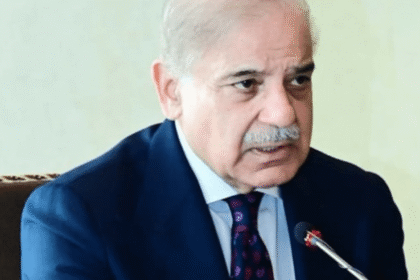In a significant administrative restructuring, the Punjab government has officially denotified two crucial cabinet committees: the Cabinet Committee on Finance and Development, and the Cabinet Committee on Legislative Business. This decision, communicated through a notification released on Wednesday, reflects a strategic shift in how governance and decision-making will be managed in the province, raising questions about the implications for governance efficiency and accountability.
Details of the Notification
The announcement of the dissolution of the two committees was made clear in the notification, which stated that their functions would cease immediately. The Cabinet Committee on Finance and Development was responsible for overseeing fiscal policies, budget allocations, and developmental projects across the province. The Cabinet Committee on Legislative Business, on the other hand, played a vital role in managing the legislative agenda and facilitating the passage of laws.
Following this change, all decision-making powers previously held by these committees will now be consolidated under the Directorate of Cabinet Affairs. This department is expected to handle all matters related to finance, development, and legislative processes, taking on the additional responsibilities formerly managed by the two denotified committees.
Immediate Reactions to the Announcement
The decision to dissolve these committees has elicited a range of responses from various quarters, including political analysts, government officials, and the general public. Many stakeholders are assessing the potential impacts this restructuring may have on governance in Punjab.
Political observers have noted that such administrative changes are not uncommon in the evolving landscape of provincial governance. However, the abrupt nature of this decision raises concerns about the rationale behind it and its likely effects on the efficiency of governmental operations.
Implications for Governance
Increased Workload for the Provincial Cabinet
One of the most immediate implications of the dissolution of the two committees is the increased workload that will now fall on the provincial cabinet. Previously, the Cabinet Committee on Finance and Development played a significant role in overseeing budgetary matters, while the Cabinet Committee on Legislative Business ensured that legislative initiatives were streamlined and efficiently processed.
With both committees now dissolved, the provincial cabinet will have to absorb these responsibilities, which could result in longer deliberation times and a more cumbersome decision-making process.
The shift may lead to delays in critical areas such as budget approvals and legislative enactments, potentially stalling important development projects and policy initiatives that require timely action.
Challenges in Specialized Oversight
The absence of these specialized committees could also pose challenges in terms of oversight and accountability. Each committee brought expertise and focus to their respective areas, allowing for informed decision-making and strategic planning.
Without dedicated committees, it may become more difficult for the cabinet to address complex issues effectively. The increased breadth of responsibility may dilute the focus required to navigate intricate financial and legislative matters, potentially undermining the quality of governance in the province.
Strategic Reasons Behind the Decision
While the notification did not explicitly outline the reasons for the dissolution of these committees, analysts have speculated on possible strategic motivations behind the decision.
Streamlining Administrative Processes
One potential motivation could be the desire to streamline administrative processes. By consolidating power under the Directorate of Cabinet Affairs, the Punjab government may aim to eliminate redundancies and improve coordination among various departments. This restructuring could foster a more agile decision-making framework, enabling the government to respond more swiftly to emerging challenges.
Political Considerations
The dissolution of these committees could also reflect broader political considerations. Political maneuvering within the provincial government often plays a role in administrative changes, as leaders seek to consolidate power or respond to internal dynamics.
The removal of the committees may signal a shift in governance philosophy, suggesting that the current administration is prioritizing centralized authority and accountability in its approach to governance.
Increased Accountability and Transparency
While the changes present challenges, there are also potential benefits to this administrative shift. With fewer committees, it may be easier to track decisions and hold the cabinet accountable for its actions.
Centralizing decision-making could enhance transparency in governance, as stakeholders would have a clearer understanding of who is responsible for specific decisions. This shift may foster a culture of accountability within the provincial government, as the cabinet will be directly linked to the outcomes of its decisions.
Public and Political Reactions
The public reaction to the denotification of these cabinet committees has been mixed. While some citizens view the move as a positive step towards improved governance, others have expressed skepticism about the implications for efficiency and oversight.
Concerns from Political Opposition
Political opponents of the current administration have criticized the decision, arguing that it may lead to greater inefficiencies in governance. They contend that specialized committees are essential for addressing the unique challenges faced by the province, particularly in areas such as finance and legislation.
Opposition leaders have called for greater transparency regarding the reasons behind the dissolution, urging the government to clarify its intentions and outline plans for how decision-making will be managed moving forward.
Analysts Weigh In
Political analysts have provided a range of perspectives on the changes. Some argue that the move could facilitate quicker decision-making by reducing bureaucratic hurdles, while others caution against the potential for decreased oversight and the risks associated with concentrating power in a single entity.
The evolving narrative surrounding these developments suggests that stakeholders are closely monitoring how the Punjab government adapts to this new administrative structure.
Future Outlook for Governance in Punjab
As the Punjab government transitions into this new phase of governance, the effectiveness of the Directorate of Cabinet Affairs will be critical in determining the impact of these changes.
Monitoring Decision-Making Processes
Key indicators for assessing the success of this administrative restructuring will include the speed and effectiveness of policy implementation, particularly regarding fiscal and legislative matters. The ability of the Directorate to manage the increased workload and maintain a focus on critical issues will be under scrutiny.
Public Service Delivery and Development Initiatives
The performance of the provincial cabinet in delivering public services and managing development initiatives will be paramount. The dissolution of the committees could pose risks to ongoing projects, and stakeholders will be keen to see how the government addresses any challenges that arise.
Moreover, public trust in the government’s ability to deliver on its promises will be influenced by the transparency and efficiency of decision-making processes in the months to come.
Long-Term Implications for Governance Structures
The decision to denotify these committees may set a precedent for how governance is approached in Punjab and potentially influence similar changes in other provinces.
Shaping Future Governance Models
As political landscapes evolve, the effectiveness of this new governance model will likely be studied by other provincial governments. If successful, it could encourage similar consolidations of power and decision-making authority in other regions, potentially reshaping the administrative framework of provincial governance in Pakistan.
Challenges for Future Administrations
Future administrations may face challenges related to public expectations and accountability. If the current restructuring leads to inefficiencies or reduced oversight, the government could face backlash from constituents and political opponents.
Opportunities for Reform
Conversely, if the Punjab government successfully navigates this transition and demonstrates effective governance, it could pave the way for reforms that enhance administrative efficiency and accountability across the board.
Navigating New Governance Challenges
The Punjab government’s decision to denotify two key cabinet committees marks a pivotal moment in the province’s administrative evolution. While intended to streamline operations and consolidate authority, the dissolution raises important questions about governance efficiency, oversight, and accountability.
As stakeholders closely monitor the impacts of this decision, the effectiveness of the Directorate of Cabinet Affairs will be critical in shaping the future of governance in Punjab. The coming months will reveal whether this administrative restructuring leads to enhanced decision-making or presents new challenges that the government must confront.
As the province moves forward, the focus will remain on how these changes affect public service delivery, developmental initiatives, and the overall political landscape in Punjab.
#PunjabGovernment #CabinetCommittees #AdministrativeChange #Governance #PoliticalAnalysis #PakistanPolitics #PublicAdministration #CabinetAffairs







